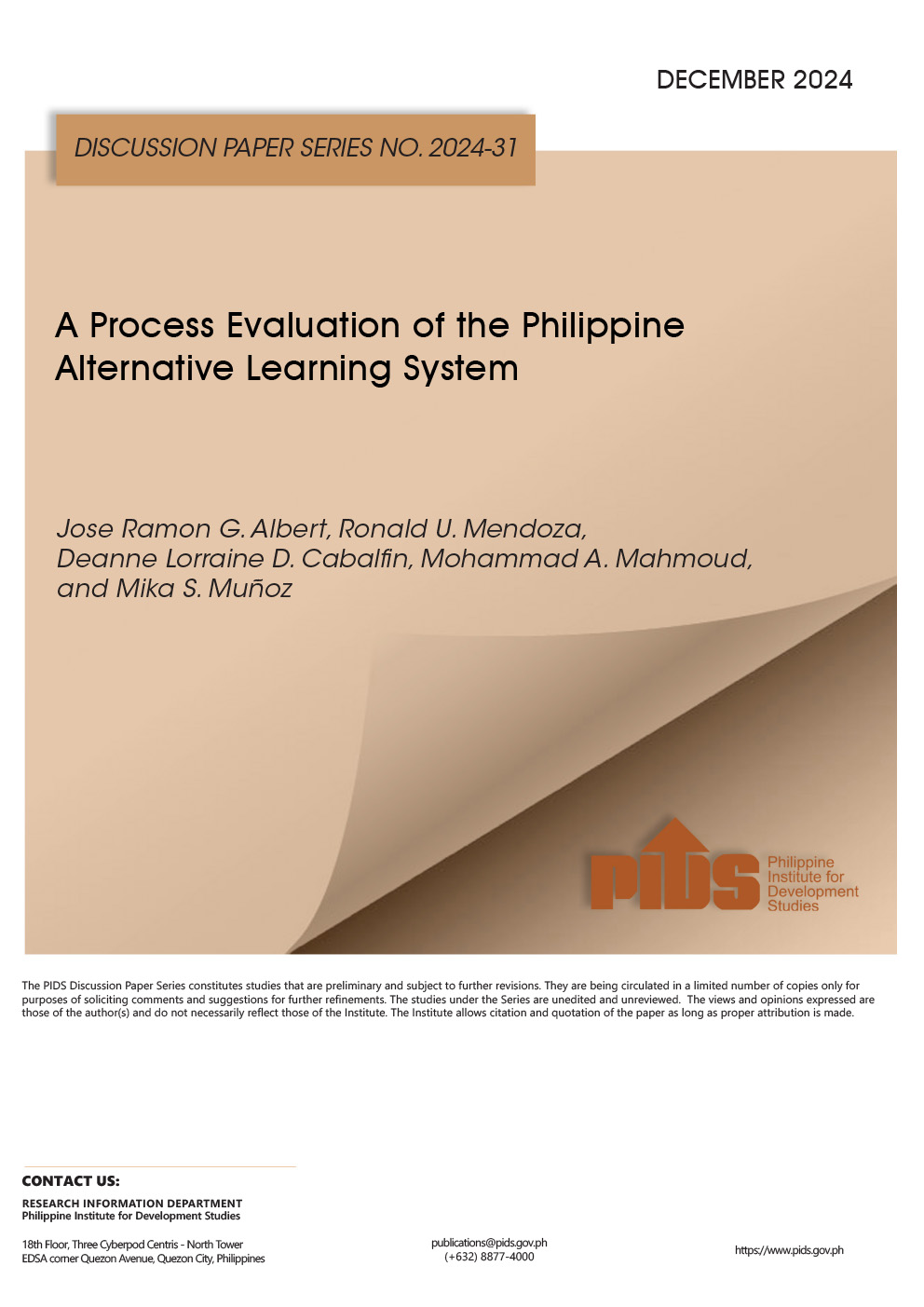While the country’s business- process outsourcing (BPO) sector has been known to provide good jobs to millions of Filipinos, economists said relying on the sector alone would not significantly reduce poverty.
In a recent Philippine Institute and Development Studies forum, former University of the Philippines School of Economics Dean Ramon Clarete said the BPO sector is concentrated on the “low end” of the outsourcing industry.
Clarete said this makes the jobs offered by the BPO sector in the Philippines especially vulnerable to automation, since low-end contact center operations can easily be replaced by artificial intelligence (AI).
Certainly, we should not bask in it because most of it is concentrated in the contact center, low-end part of the BPO,” he said. “Contact centers can be partly automated, so you’ll be losing jobs if you don’t do anything now.
Nonetheless, Clarete said the country’s BPO sector has done the Philippine economy a great service given that it easily accounts for 8 percent of GDP.
This is nearly as high as the 10 percent contribution of remittances to GDP. The Philippines’s labor export has played a major role in the country’s economic growth story for decades.
In the same forum, Hal Hill, professor emeritus of Southeast Asian Economies in the Arndt Corden Department of Economics, Crawford School of the Australian National University, said the country’s services sector has really made the Philippine economy unique relative to its neighbors.
Hill said despite the higher wages paid to BPO workers relative to the minimum wage does not temper the interest of foreigners in outsourcing various services to the Philippines.
Philippine commercial trade- policy interest, including Australia as well, especially Asean economic community is much more focused on services than goods,” Hill said.
He added the services sector has been a great asset to the Philippine economy because the minimum wage hurts the manufacturing sector, thereby limiting its contribution to economic growth.
Hill said that apart from the minimum wage, BPO exports don’t go through ports and harbors. This shields the BPOs from experiencing logistics challenges that manufacturing has been saddled with.
The Philippines hasn’t done so well in its global production networks and manufacturing side, but it has done very well in the BPOs,” Hill said.
In its “Information Economy Report 2017,” the United Nations Conference on Trade and Development (Unctad) said some 85 percent of retail and 89 percent of BPO workers are at risk of automation.
Unctad said that, while increased digitalization will create new jobs, there will be occupations that will disappear as a result of automation.
The report noted that increased digitalization will introduce four changes—job creation, job destruction, job changes and job shifts. New jobs will stem from the production of new goods and services, such as 3D printing, software, app development and AI.
The report stated that conditions of work will be affected, such as benefits extended to workers, such as allowing more flexibility for people in remote locations and people with disabilities.
Unctad also said new skills and education adjustments will be required, particularly those linked to digital skills. Workers will also be required to have strong cognitive, adaptive and creative skills.
In a recent Philippine Institute and Development Studies forum, former University of the Philippines School of Economics Dean Ramon Clarete said the BPO sector is concentrated on the “low end” of the outsourcing industry.
Clarete said this makes the jobs offered by the BPO sector in the Philippines especially vulnerable to automation, since low-end contact center operations can easily be replaced by artificial intelligence (AI).
Certainly, we should not bask in it because most of it is concentrated in the contact center, low-end part of the BPO,” he said. “Contact centers can be partly automated, so you’ll be losing jobs if you don’t do anything now.
Nonetheless, Clarete said the country’s BPO sector has done the Philippine economy a great service given that it easily accounts for 8 percent of GDP.
This is nearly as high as the 10 percent contribution of remittances to GDP. The Philippines’s labor export has played a major role in the country’s economic growth story for decades.
In the same forum, Hal Hill, professor emeritus of Southeast Asian Economies in the Arndt Corden Department of Economics, Crawford School of the Australian National University, said the country’s services sector has really made the Philippine economy unique relative to its neighbors.
Hill said despite the higher wages paid to BPO workers relative to the minimum wage does not temper the interest of foreigners in outsourcing various services to the Philippines.
Philippine commercial trade- policy interest, including Australia as well, especially Asean economic community is much more focused on services than goods,” Hill said.
He added the services sector has been a great asset to the Philippine economy because the minimum wage hurts the manufacturing sector, thereby limiting its contribution to economic growth.
Hill said that apart from the minimum wage, BPO exports don’t go through ports and harbors. This shields the BPOs from experiencing logistics challenges that manufacturing has been saddled with.
The Philippines hasn’t done so well in its global production networks and manufacturing side, but it has done very well in the BPOs,” Hill said.
In its “Information Economy Report 2017,” the United Nations Conference on Trade and Development (Unctad) said some 85 percent of retail and 89 percent of BPO workers are at risk of automation.
Unctad said that, while increased digitalization will create new jobs, there will be occupations that will disappear as a result of automation.
The report noted that increased digitalization will introduce four changes—job creation, job destruction, job changes and job shifts. New jobs will stem from the production of new goods and services, such as 3D printing, software, app development and AI.
The report stated that conditions of work will be affected, such as benefits extended to workers, such as allowing more flexibility for people in remote locations and people with disabilities.
Unctad also said new skills and education adjustments will be required, particularly those linked to digital skills. Workers will also be required to have strong cognitive, adaptive and creative skills.












